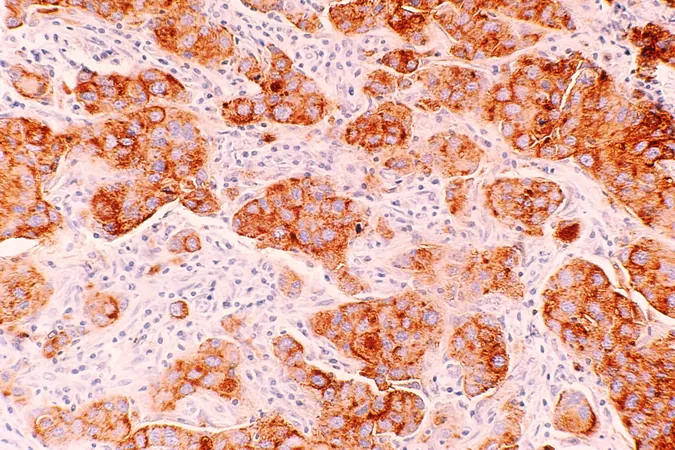
Groundbreaking Study Reveals Life-Saving Benefits of Preventive Surgery for Young BRCA-Mutation Carriers with Early-Onset Breast Cancer
2024-12-11
Author: Wei
A recent study presented at the San Antonio Breast Cancer Symposium (SABCS) has unveiled promising insights for patients with germline BRCA mutations. Those diagnosed with breast cancer at or before the age of 40 who opted for risk-reducing surgeries such as bilateral risk-reducing mastectomy (RRM) and risk-reducing salpingo-oophorectomy (RRSO) demonstrated significantly improved survival rates compared to those who did not undergo these procedures.
Dr. Matteo Lambertini, an associate professor of medical oncology from the University of Genova-IRCCS Policlinico San Martino Hospital, highlighted the necessity of understanding the impact of these surgeries for BRCA carriers who’ve already experienced early-onset breast cancer. While the benefits of RRM and RRSO have been established for those without prior cancer, their effects on individuals with a history of early breast cancer had remained ambiguous.
The implications of these surgeries are particularly critical for younger patients, as they may experience changes in quality of life, including infertility and early menopause due to RRSO, complications that can be exacerbated without access to hormone replacement therapies.
In the comprehensive BRCA BCY Collaboration study, researchers analyzed data from 5,290 patients across 109 institutions over two decades (2000-2020), focusing on individuals diagnosed with stage 1-3 breast cancer. Among them, nearly 4,000 had undergone at least one type of risk-reducing surgery. Notably, those who opted for RRM had a staggering 35% lower risk of mortality and a 42% lower chance of breast cancer recurrence or the onset of secondary malignancies. Comparatively, those who received RRSO also benefited greatly, with a 42% reduced risk of death.
Notably, survival benefits exhibited variability depending on factors such as genetic mutation and breast cancer subtype. For instance, patients possessing BRCA1 mutations experienced a remarkable 56% reduction in death risk from RRSO, a stark contrast to the 15% for those with BRCA2 mutations. Additionally, triple-negative breast cancer patients reaped the most significant rewards—showing a 56% reduced risk of death post-RRSO.
This innovative research marks a pivotal moment for enhancing counseling protocols concerning cancer-risk management strategies among BRCA-mutation carriers who have faced early breast cancer. Despite its strengths, the study does have limitations owing to its retrospective nature and variation in healthcare systems and recommendations over the years.
As awareness grows around prevention strategies for this high-risk group, the findings encourage patients and healthcare providers alike to reconsider the crucial role of risk-reducing surgeries in extending lives and improving outcomes for young breast cancer warriors. This study definitively sheds light on the need for tailored healthcare approaches, fostering hope and informed choices for those grappling with BRCA mutations.
Stay tuned as more revelations in the fight against breast cancer continue to emerge!




 Brasil (PT)
Brasil (PT)
 Canada (EN)
Canada (EN)
 Chile (ES)
Chile (ES)
 España (ES)
España (ES)
 France (FR)
France (FR)
 Hong Kong (EN)
Hong Kong (EN)
 Italia (IT)
Italia (IT)
 日本 (JA)
日本 (JA)
 Magyarország (HU)
Magyarország (HU)
 Norge (NO)
Norge (NO)
 Polska (PL)
Polska (PL)
 Schweiz (DE)
Schweiz (DE)
 Singapore (EN)
Singapore (EN)
 Sverige (SV)
Sverige (SV)
 Suomi (FI)
Suomi (FI)
 Türkiye (TR)
Türkiye (TR)